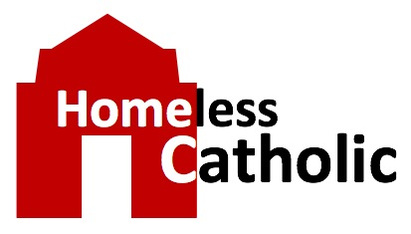Giddy with joy
At the Easter Mass in my parish about two weeks ago, the priest was overcome with excitement in his sermon. Several times, he led us in chanting “Alleluia!” It reminded me of that familiar scene in a war movie where the sergeant, dissatisfied with his platoon’s response of “Yes, Sergeant!” shouts, “I can’t hear you!”
I mentioned to the priest after Mass that he seemed giddy with joy.
Image by Mater Miliano
Giddy with joy
By Norm McGraw
Saturday of the Second Week of Easter
Acts 6:1-7
John 6:16-21
At the Easter Mass in my parish about two weeks ago, the priest was overcome with excitement in his sermon. Several times, he led us in chanting “Alleluia!” It reminded me of that familiar scene in a war movie where the sergeant, dissatisfied with his platoon’s response of “Yes, Sergeant!” shouts, “I can’t hear you!”
I mentioned to the priest after Mass that he seemed giddy with joy.
Saturday’s readings indicate that we are still experiencing the excitement of Easter. This is obvious from the “Alleluia” remarks following the Responsorial Psalm (Psalm 33: 1-2, 4-5, 18-19): “Christ is risen, who made all things; he has shown mercy on all people.”
Let that resonate in your mind for a while.
The second reading, from the sixth chapter of the gospel of John (John 6:61-21), demonstrates the power of God through his miracles. In fact, from the second through the sixth chapters, John recounts several miracles. It is interesting to note that after he describes Jesus Christ performing a miracle, he relates a moment where Jesus revealed a metaphysical truth about the nature of the Trinity to his disciples. In Saturday’s reading, John describes when the apostles were in a fragile boat experiencing high winds in the evening. Suddenly, “they saw Jesus walking on the sea and coming near the boat, and they began to be afraid. But he said to them, ‘It is I. Do not be afraid.’“
This miracle is but a small sample of the power of God’s authority over nature. A day after Jesus walked on water, he spoke to them: “Truly, truly, I say to you, it was not Moses that gave you the bread from heaven, but my Father gives you the true bread from heaven. For the bread of God is he who comes down from heaven and gives life to the world.” A little later, he says, “I am the bread of life; whoever comes to me shall not hunger, and whoever believes in me shall not thirst.” Still later, he states, “For this is the will of my Father, that everyone who looks on the Son and believes in him should have eternal life, and I will raise him up on the last day.”
Wow. Let that resonate in your mind for a while.
The first reading, from the sixth chapter of the Acts of the Apostles (Acts 6:1-7), reveals how the early Christians handled problems feeding members of their community. In the fourth chapter, we learn that many lived in a commune-type society where everyone helped everyone else. In this reading, the Hellenists (Greek-speaking Jewish Christians) complain that their widows are “being neglected in the daily distribution.” The community assigned seven individuals to resolve the problem, which they did.
Together, the two readings offer a guide to acknowledging God’s presence in our lives. That doesn’t mean we will live in a commune and see Jesus walk on water. But we can reflect that He is our Creator anytime during the day. When we meet a family member, a friend, or a stranger, we can act as Jesus would want us to act, with kindness and love.
With those simple acts, we’re responding to the reality of the Resurrection.
Another thought that we should allow to resonate for a while. You might even feel giddy with joy.

